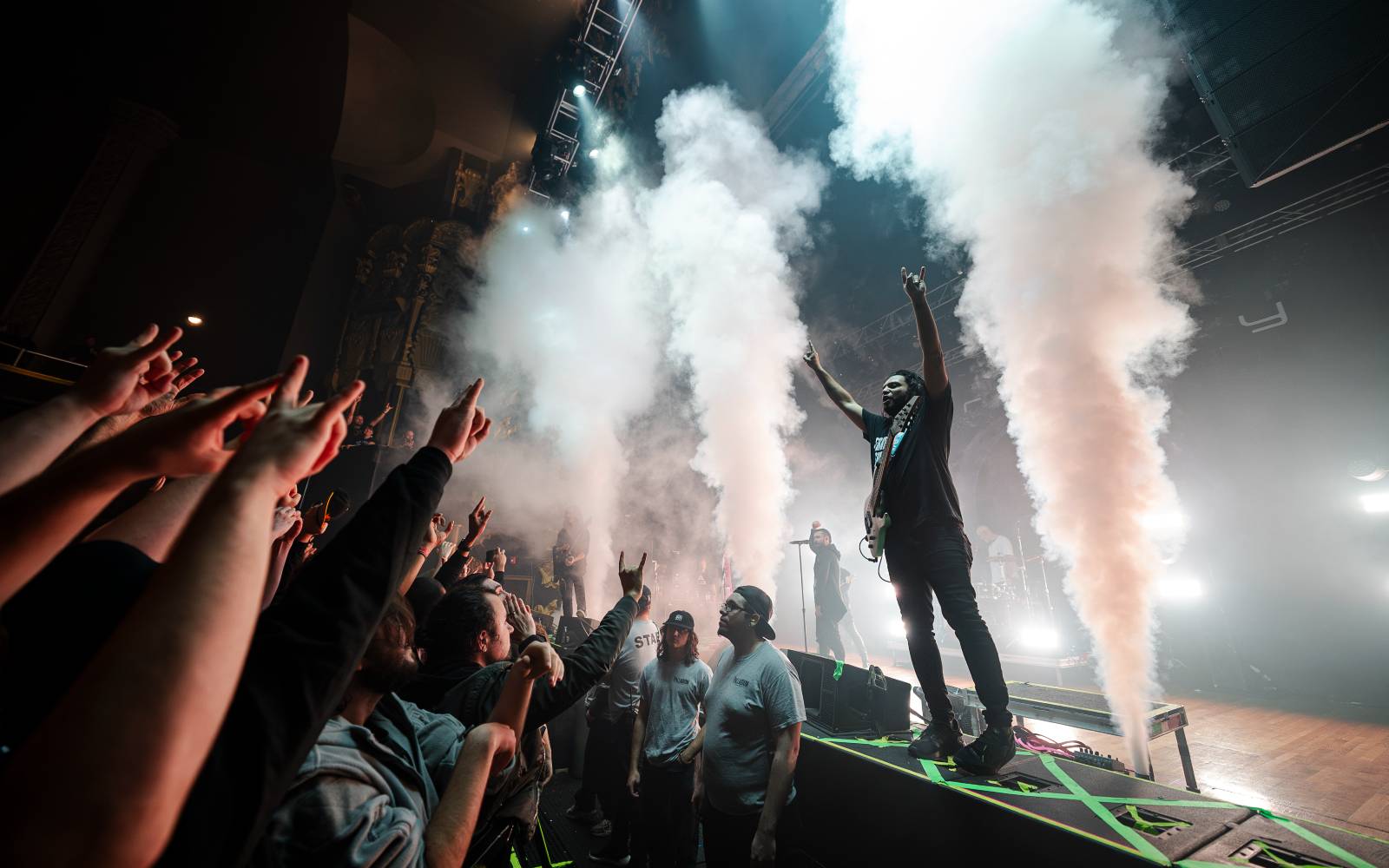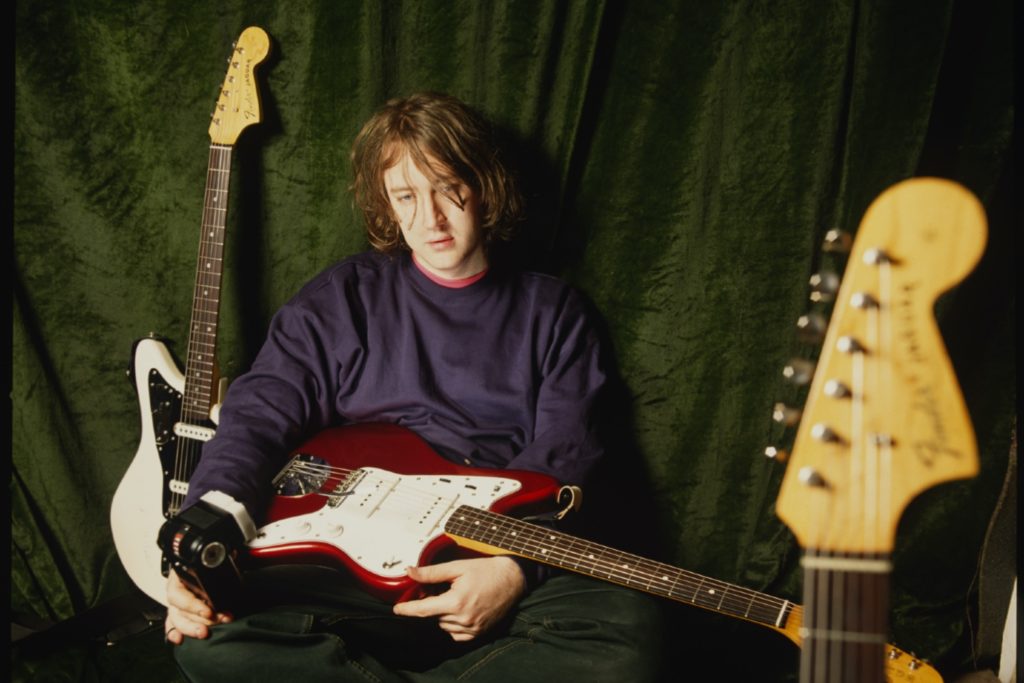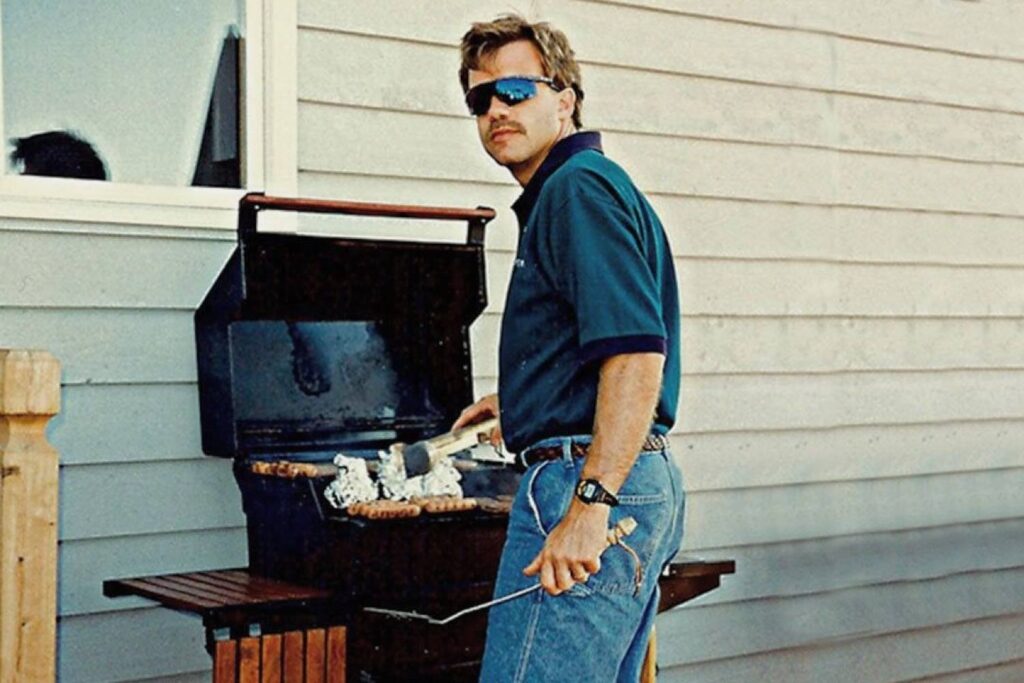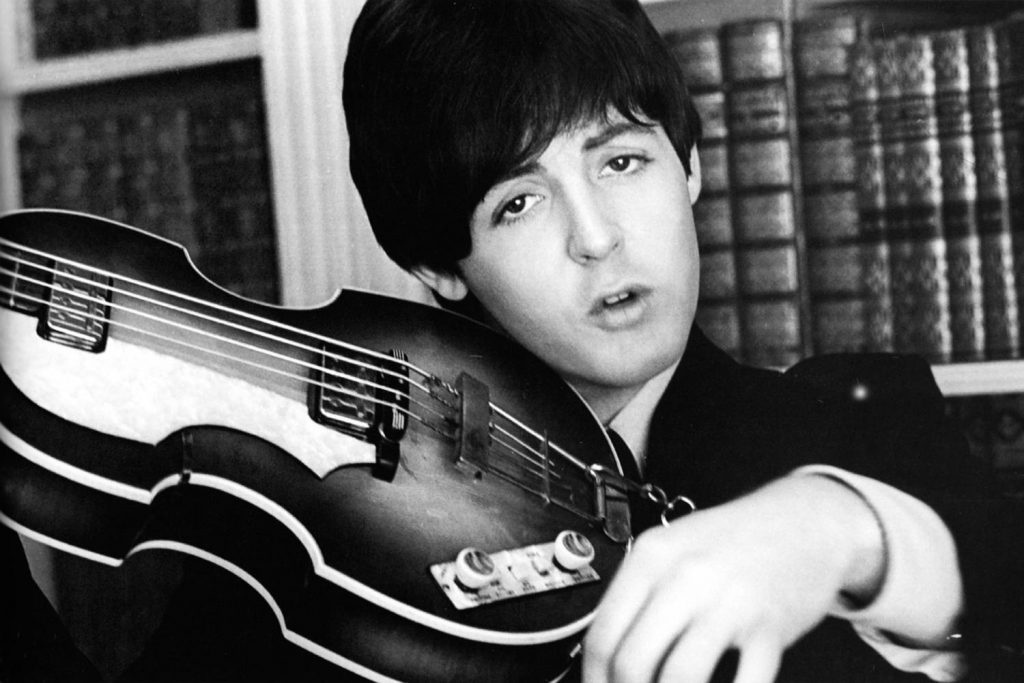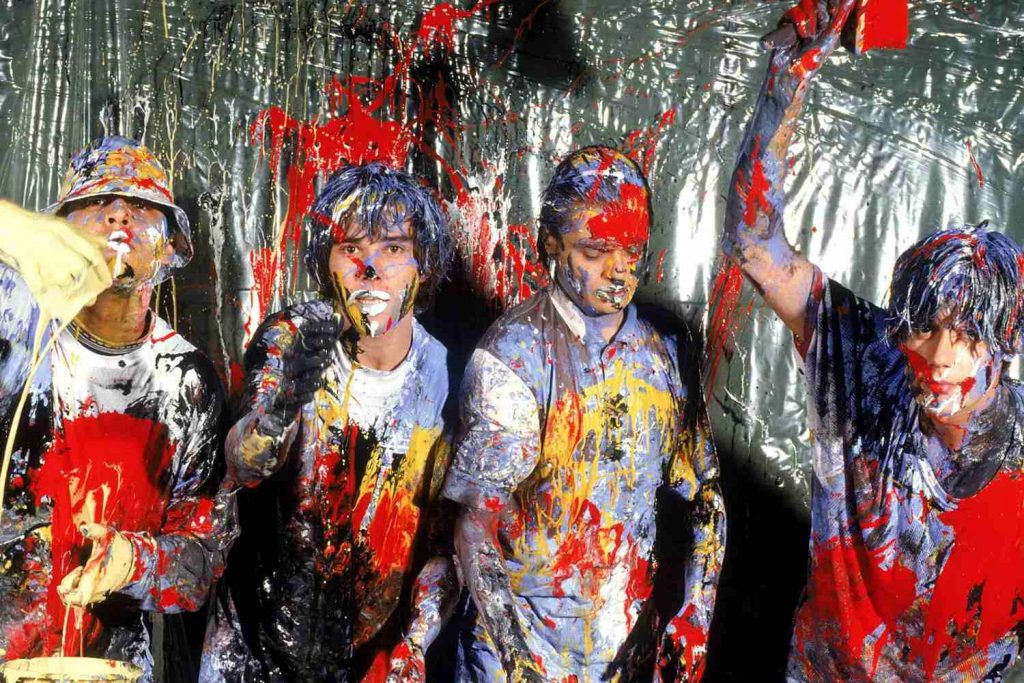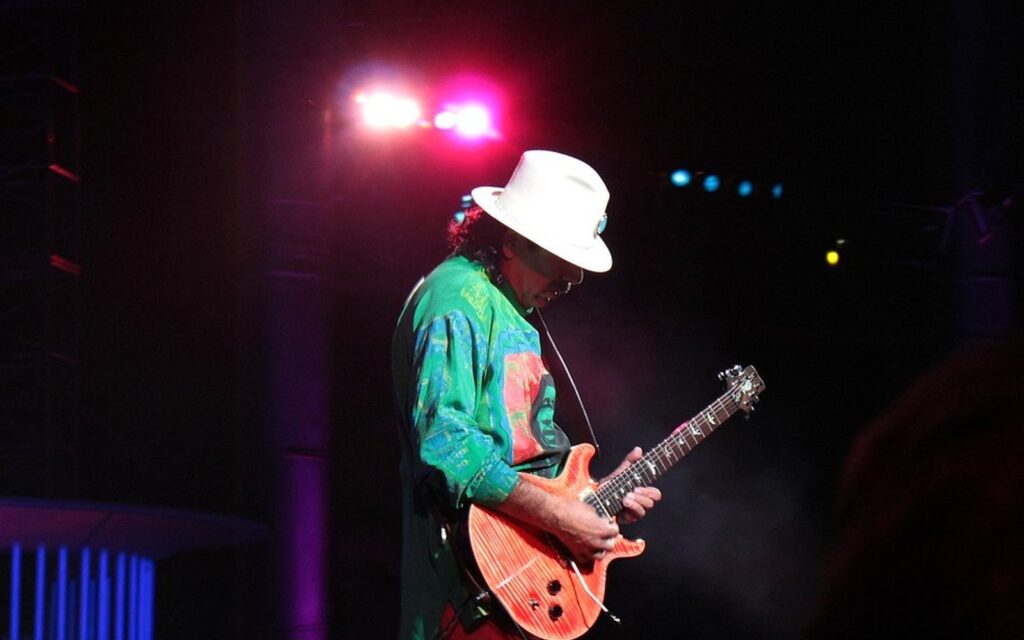November sees rock and metal heavyweights descending on Australia for the aptly named Monolith Festival.
Headliners Coheed And Cambria are no strangers to Australian audiences, having built a following over the last few decades and ten records, with genre-defining Periphery also making their first Australian appearance since 2017, having released two records since then, 2019’s Periphery IV: Hail Stan and 2023’s Periphery V: Djent Is Not a Genre.
Periphery have been pushing the boundaries of modern metal for quite some time, with humble beginnings as a solo project for guitarist Misha Mansoor, slowly adding members to arrive at the lineup that’ll be appearing at Monolith in November. Each member of Periphery brings their own unique flavour, having played in various bands themselves, all members also having the ability to write, record and produce music themselves. We sat down with guitarists Mark Holcomb and Misha Mansoor to discuss that dynamic.
Mark (referred to as “Mrak” by Misha) begins by explaining their process has evolved quite a bit “over the thirteen years I’ve been with Periphery. And Misha, him being the founder of the band, his role has always been consistent in the band. He’d always been the nexus of the songwriting and creation process.”
Read all the latest features, columns and more here.
“He’s our producer and the glue that holds everything together creatively.” Mark states. “When we get together and it’s time to make a Periphery record, Misha is at the helm, and Jake (Bowen, Periphery’s third guitarist) and I are there to contribute ideas with the knowledge that Misha will be there to—I always call him the ‘glue’, fitting pieces together.”
Mark speaks further to his own shortfalls in arranging a song. Riffs and bits he’s fine with, but putting it all together is something that he acknowledges Misha has never struggled with.
Misha Mansoor
So does this make Misha the leader of the band per se?
“Before Mark has a chance to answer,” begins Misha. “Yes I am.”
Misha and Mark laugh. Misha clarifies, “There’s no one in charge, it’s a very organic thing. You have to remember we’ve been doing this a long time, so this stuff has sort of developed. There used to be arguments, there used to be a lot of—” Misha stops to think.
“I think the main thing is, anyone who’s in a band could relate to this,” Misha continues. “When you have a collaborative session and someone has something that gets cut, that’s a difficult thing, [to not feel] like that’s a reflection on you or your abilities as a musician and being able to take a step back and be like ‘Well this doesn’t serve the song.’” he explains.
“And once you get past that, it really streamlines the writing, ‘cause we can cut stuff, we can edit stuff, and no one really has any issue with it. We all tend to be on the same wavelength, so if it’s not right or if there’s something awkward we generally [all] feel ‘that’s not quite right’.”
“And if solving it is cutting a riff, it doesn’t matter. We’ve cut some of the craziest, coolest riffs that Mark has ever come up with.” acknowledge Misha. “But even he’s been like ‘Yeah, it sucks but [the song] works better without it.”
Mark Holcomb
Misha and Mark speak further to their roles as guitarists in the band, having even learned to leave space for the soaring lead vocals of Periphery’s frontman Spencer Sotelo.
We shift here to how the songs are performed live. Leaving space for everyone to have their space in the studio is one thing, but writing a song that’ll have an impact live is another.
“Generally when we’re writing, we’re approaching it from a compositional standpoint. That’s the beauty of an album. As far as we’re concerned there’s no rules.” explains Misha.
“But then live gets to be this fun challenge of ‘how can we best represent that?’” he continues. “We do try to do it as accurately as possible, but if it’s not a 1:1 thing it’s not the end of the world ‘cause that wasn’t the point of the composition. I think over time we have become a bit more aware of what tends to work, and I’m sure that bleeds into our writing approach.”
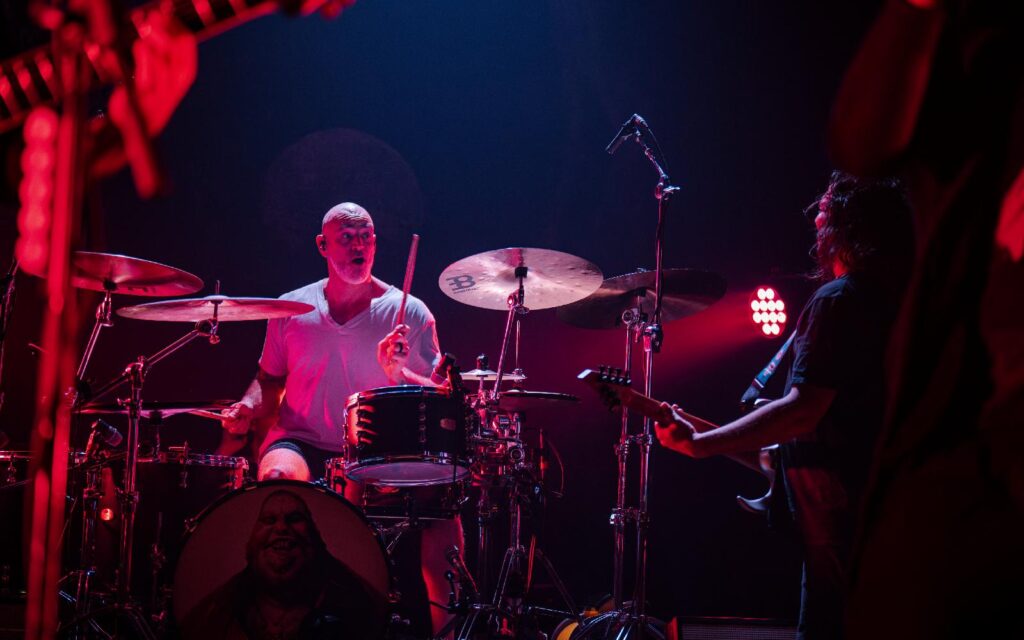
Misha explains that, like a lot of us, Periphery will sometimes write a riff that they know will work live, they can picture it, but he sees that as a perk rather than an approach per se.
On the festival world vs. a headline tour, Misha speaks further to the limitations of performing those songs at a festival, they’re limited on time so the set still has to work. “For the sake of efficiency, we don’t want to learn a completely different set of songs. We tried that once on a recent tour and it was a nightmare!” he laughs. “We fine tune [a headline set] to be festival appropriate.”
“Although we’ll have some fans there, a festival is really about making new fans, playing to people who’ve never heard of us, putting our best foot forward with that. And then headline shows are really more about playing to our crowd, literally. We can get weird with a headliner,” he laughs. “We can pull out songs that literally no one has asked us to play live.”
I shift to their gear here, acknowledging that Periphery are somewhat famous for exploring multiple tunings, baritone and extended range guitars, and I ask how they’re navigating that live—especially for a festival.
Misha and Mark burst into laughter before I’ve even finished the question. “How are we navigating that live Mark?” Misha asks with a chuckle.
“You sound like our manager,” begins Mark, to more laughs from Misha. “Who looks on our expenses for tour and asks why we spent three thousand dollars on baggage fees going to Europe.” he says with a grin.
“And the answer is,” Mark states.”… by bringing way too many guitars.”
“The thing is, it’s not too many guitars, it’s the guitars we need to do this. We’re not being excessive, we have to bring that amount of guitars to pull off all of these different tunings.”
“If I could go back in time,” begins Misha. “I would be like [to his past self] ‘This is a pitch shifter. Use it. I know it sucks now but in ten years it’ll be good. Just use a six string!’ and then we would travel as a band with four guitars at all times, and we’d be fine.”
Misha explains further that their response here is evidence that they see their songwriting process as composition, with little to no thought of the eventual live show, resulting in multiple guitars, with spares, in multiple tunings, being required for Periphery.
“Unfortunately we just lug ‘em around, man.” says Mark.
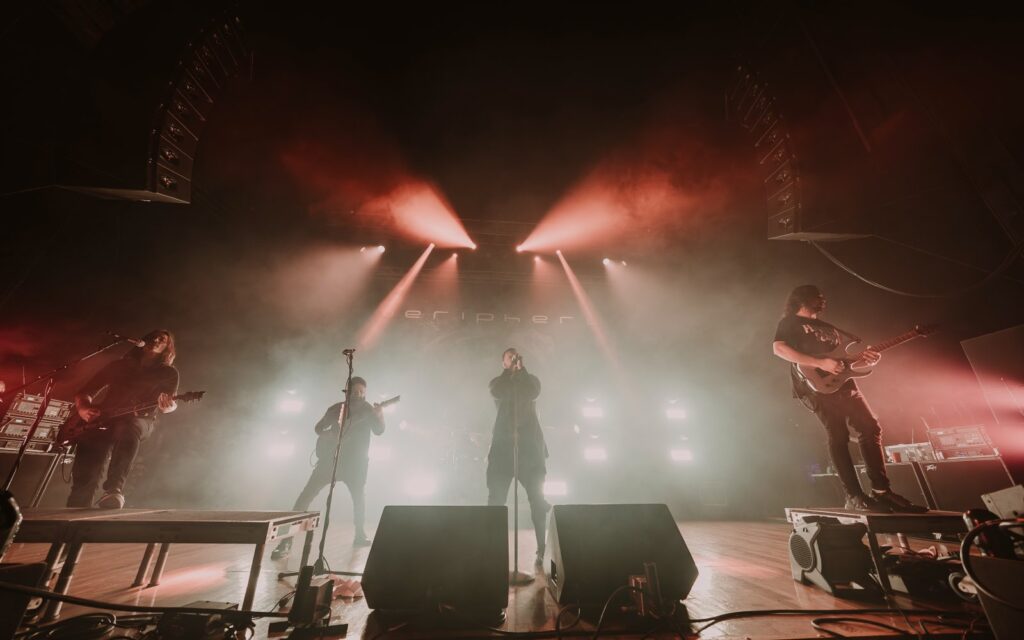
Misha speaks further to their tunings, saying that it’s not always a uniformly de-tuned tuning, sometimes one note, or one string is tuned differently for a unique sound, making pitch shifters or de-tuning pedals little to no help. He mentions Line 6’s Variax system, which tracked each string separately, and therefore could’ve become a saving grace if it weren’t a proprietary system for Line 6.
“I’m saying this out loud so that maybe someone revives that, ‘cause that could solve some of our problems.” he says with hope.
Monolith festival
Periphery are a band of almost two decades, now bringing their live show to Australia in November for Monolith festival. Their live show has surely evolved since then – but how complex has it become? Being one of the first bands that I personally knew were using MIDI to switch the patches of their AxeFx units, I start there with my line of questioning.
“We have the laptop which is sending us click and feeding tracks to our in-ear mixes and whatever else up front, but that’s also doing MIDI changes for our AxeFxes. We haven’t used pedalboards in well over a decade at this point.” Misha explains.
“Fantastic!” I exclaim. Mark grins.
“It’s one of those things that we’ve gotten so used to, that that’s just the way that it is.” continues Misha. “I think we were doing it so early on that we probably turned some bands on to it, especially at first.”
“It’s funny, the first time I saw the MIDI switching,” begins Mark. “Was in Australia with Tesseract opening for us in Brisbane.”
“I think we started implementing it later on for the US headliner in the fall. But that was the first instance we’d ever seen it. But, dude, it’s the best.”
“A game changer!” Misha adds. “All you need to do is see another band use it and you’ll be like ‘Alright! I guess we’re doing that now.”
You can become a MIDI switching convert and see Periphery and their pedalboardless set at Monolith in November. Monolith is headlined by Coheed And Cambria, supported by Periphery, Leprous of Norway, Intervals, Novelists, Australia’s Silver Fang and more. Tickets on sale now, with Monolith arriving in Brisbane’s Fortitude Music Hall on Saturday 2nd November, Saturday 9th November in Melbourne at PICA and Sydney on Sunday November 10 at the Hordern Pavilion.
